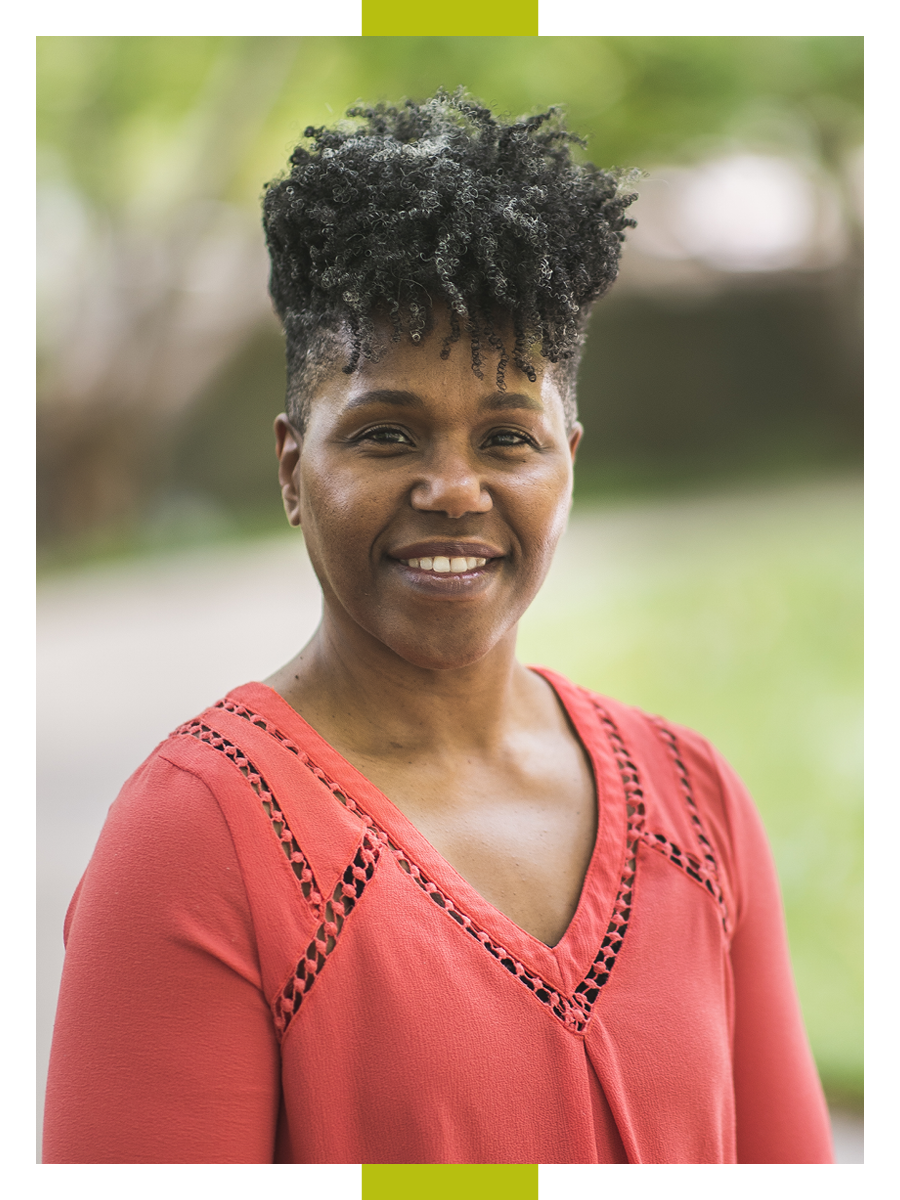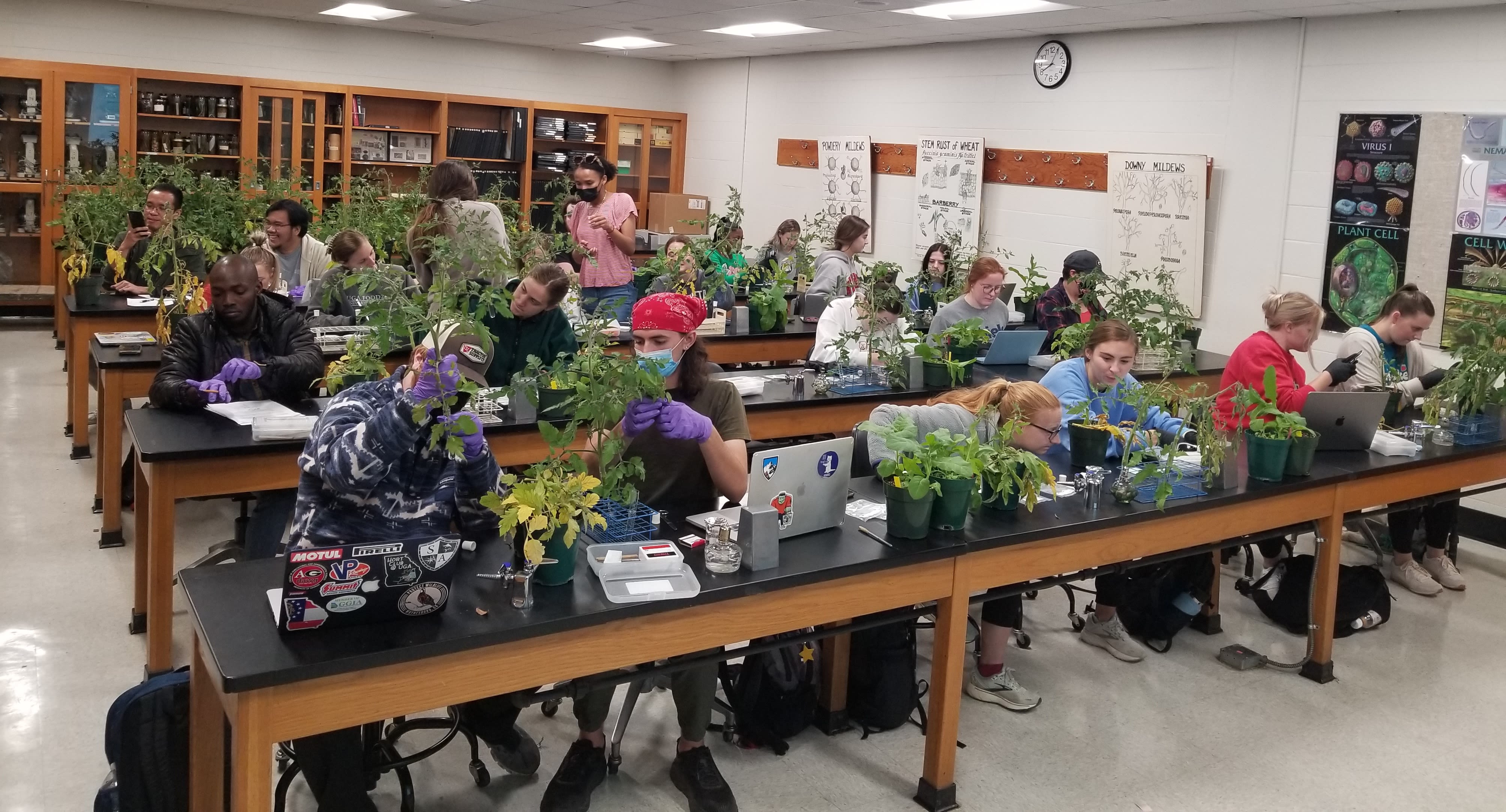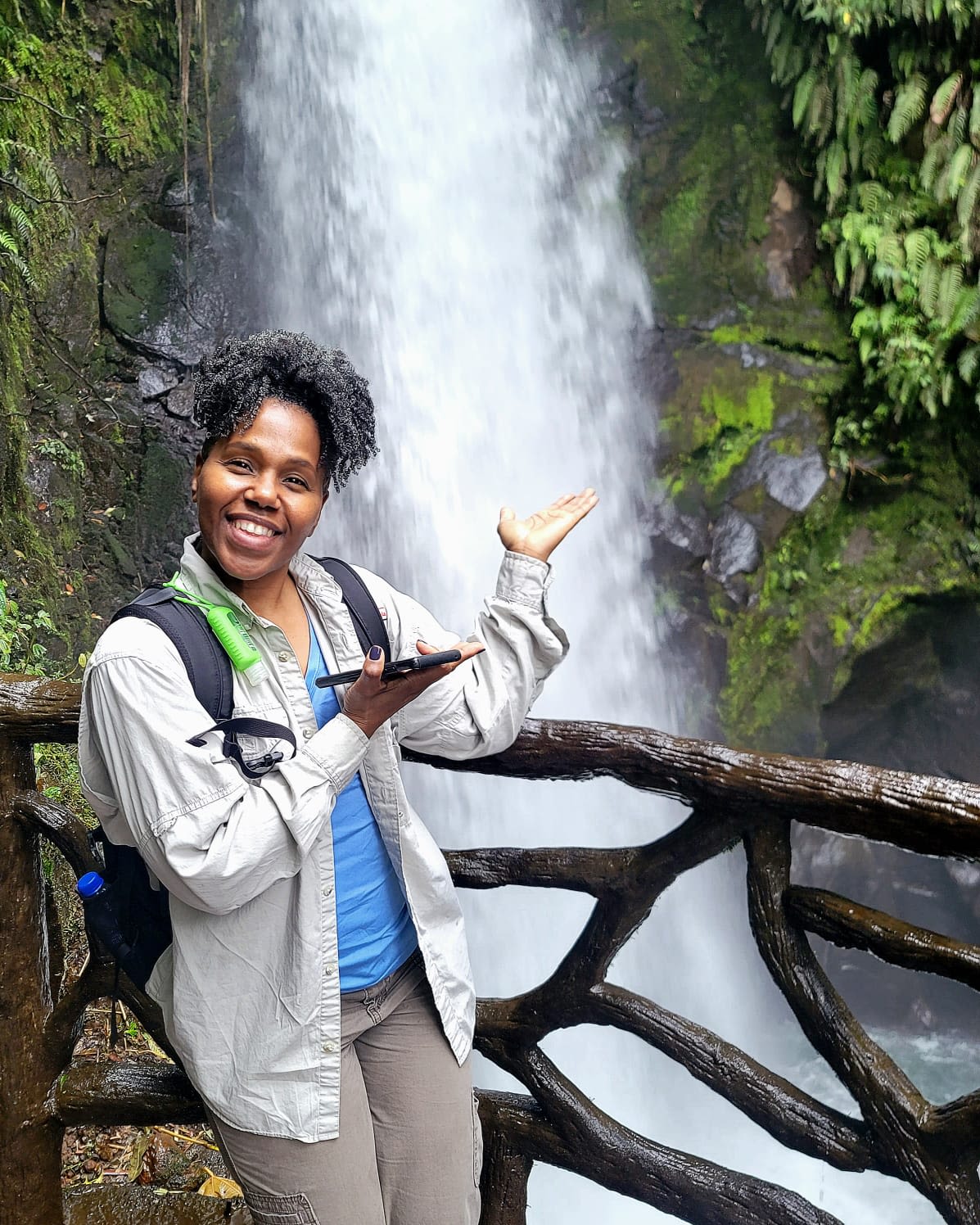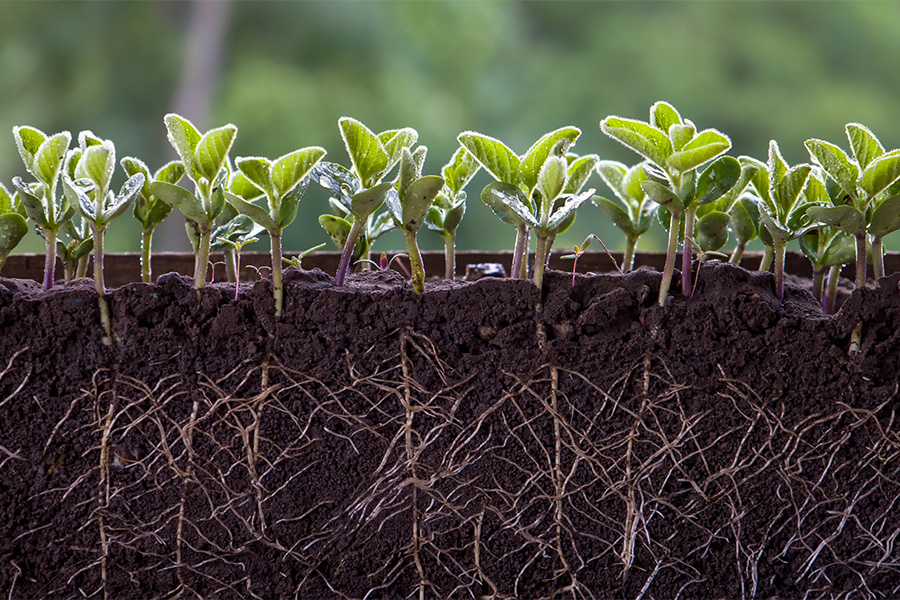Shavannor Smith
Department of Plant Pathology Associate Professor Shavannor Smith studies plant defenses against pathogens to understand disease resistance.

Can you tell me about your academic or career path — how did you get to your current position?
I am originally from Nashville, Tennessee. I attended Tennessee State University (TSU) in Nashville and received my bachelor’s and master’s degrees in biology from TSU. I initially wanted to be a medical doctor, but my undergraduate research experience in agriculture changed my career path.
I was enrolled in a genetics course at TSU the second year of my undergraduate program taught by Professor Lewis Myles, who was amazing. At that time, he worked on soybean and often talked about his research during class. There was an opportunity to do undergraduate research in his research program and I was very interested.
After I expressed interest, he offered me an opportunity to work with one of his graduate students and it changed everything for me. I started out washing dishes and making media, but within a few months I was actually assisting the graduate student with her research project and I thoroughly enjoyed it. I could see the importance of the research and how agriculture is integrated into every aspect of our lives.
Microscopic battlefields, how plants resist pathogens, and how far we’ve come in understanding the strategies employed by both sides in this conflict, with special guest Shavannor Smith.
After I finished my undergraduate program, I worked in a lab at the American Red Cross for the summer and then started the master’s program in Dr. Myles’ lab in the fall. After completing my master’s at TSU, I attended Kansas State University where I received my doctorate in genetics.
I then came to the University of Georgia for a postdoctoral position in the Department of Genetics, where I continued research in agriculture until a faculty position became available in the Department of Plant Pathology at UGA. I was offered the position and am now an associate professor in the department.
My research program focuses on understanding the mechanisms plants use to defend themselves against pathogens. I also teach two courses and have the privilege of training the next generation of scholars. Because of my undergraduate experience, I am a strong advocate for undergraduate research.
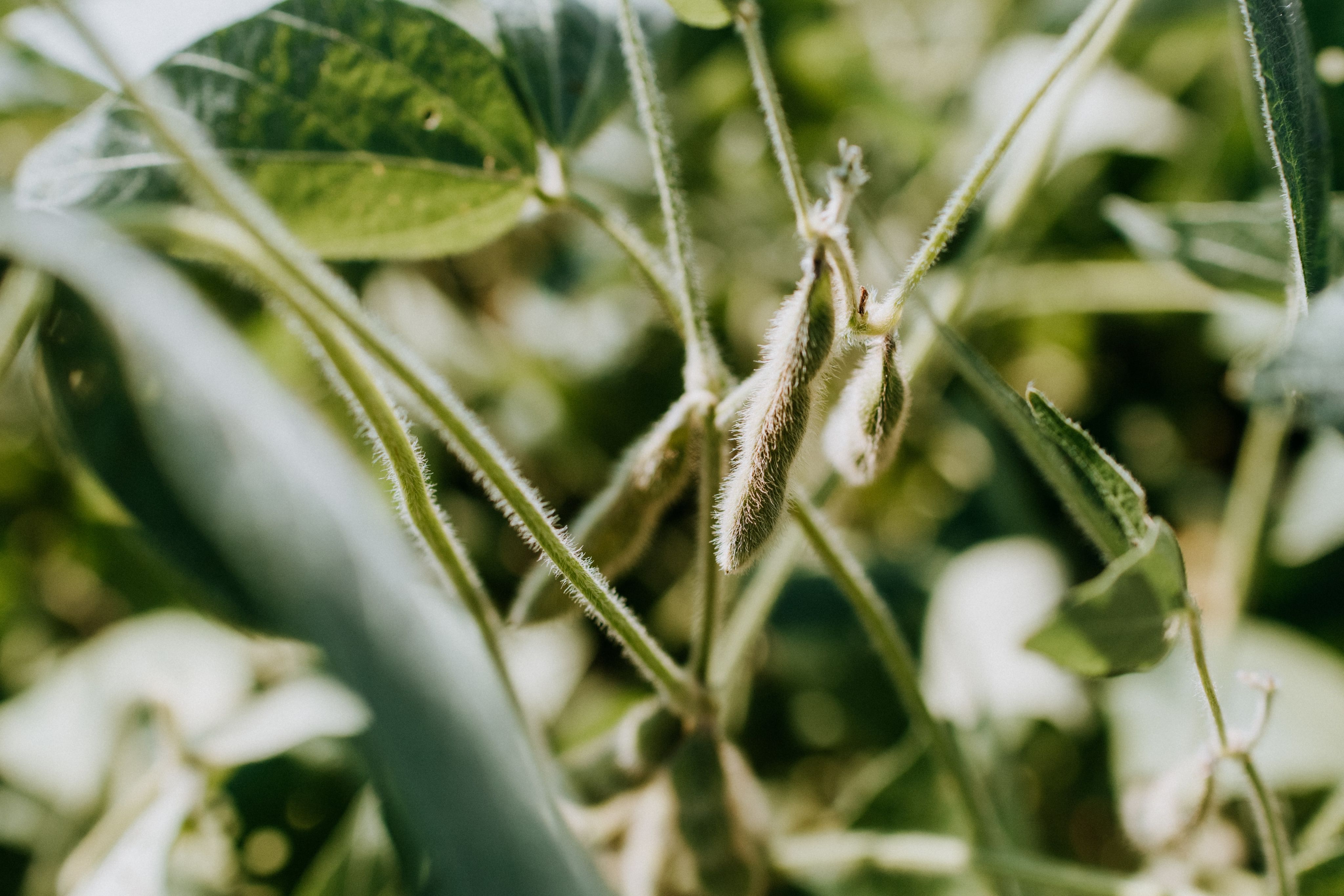

"I could see the importance of the research and how agriculture is integrated into every aspect of our lives."
What brought you to CAES in particular?
Working with graduate and undergraduate students whether it be in the laboratory, greenhouse, field or classroom, is one of the most impactful and rewarding aspects of my position.
I have the privilege of working with intelligent, inquisitive and environmentally conscious students from diverse backgrounds.
These young leaders are acquiring the skills and knowledge to improve the lives of Georgians, the U.S. and the world, and to sustain our challenged environment. Working with talented students, faculty and staff in CAES and across the university has brought me great pleasure and inspiration.
Why did you choose your field?
I chose the field of plant pathology and plant genetics because in my view, these disciplines provide foundational information needed for understanding and improving host plant resistance to plant pathogens.
When these disciplines are integrated with other disciplines, a vast array of challenges in agriculture can be addressed related to improving plant disease resistance, feeding a growing population, providing a livelihood for growers and protecting the environment.
What are you currently working on, and what is the end goal of that work?
The overall goal of my research program is to better understand the molecular mechanisms plants use to defend themselves against plant pathogens and to use this knowledge to improve plant resistance to fungal pathogens.
One graduate student is working on a project to characterize the resistance to Ustilago maydis using teosinte and maize-teosinte introgression lines. Another graduate student is working on a project that focuses on characterization of Cercospora sojina genetic diversity to better understand frogeye leaf spot resistance in soybean.
Smith and her graduate student Usha Bhatta assess disease on a plant caused by a rust fungal pathogen. “It is a privilege to work with amazing graduate students and train the next generation of scholars. It is inspiring to be a part of their journey,” said Smith. (Photo by Raymond Parcon)
Smith and her graduate student Usha Bhatta assess disease on a plant caused by a rust fungal pathogen. “It is a privilege to work with amazing graduate students and train the next generation of scholars. It is inspiring to be a part of their journey,” said Smith. (Photo by Raymond Parcon)
“Because of Dr. Smith and her strong leadership and mentorship, I felt that UGA’s Department of Plant Pathology was an excellent choice to continue my academic career. ... She has played a major role in recruitment and retention in my graduate program,” said former plant pathology graduate student Makayla Mitchell, left, with Smith.
“Because of Dr. Smith and her strong leadership and mentorship, I felt that UGA’s Department of Plant Pathology was an excellent choice to continue my academic career. ... She has played a major role in recruitment and retention in my graduate program,” said former plant pathology graduate student Makayla Mitchell, left, with Smith.

"When plant pathology and genetics are integrated with other disciplines, a vast array of challenges in agriculture can be addressed related to improving plant disease resistance, feeding a growing population, providing a livelihood for growers and protecting the environment."
What is your proudest recent accomplishment?
I have a strong commitment to graduate student training and advocacy, so when a current or former student is offered a position they have worked hard for, I am very proud of their success and privileged they trusted me to serve as their mentor.
One of my students was recently offered a postdoctoral position, and a former student now has a position working for the government. I am very excited to see them move forward in their careers.
Additionally, I was awarded the 2022 Inaugural UGA Dean’s Award for Outstanding Contributions to Graduate Education. Receiving this award is a tremendous honor. This award means a lot to me as it recognizes my work and the contributions of colleagues and students to elevate graduate student education.
The ability of the students to meet high academic standards and quickly adapt to changes in program requirements, mode of instruction, and their lives is nothing short of inspiring. This award is a reminder of the impact we can have on our graduate students and holistic graduate education.
Students and teaching assistants Anna Bass and Allysa Campbell in the laboratory section of Smith’s “Introductory Plant Pathology” course. “I thoroughly enjoy teaching. Introductory Plant Pathology allows me to engage inquisitive students from diverse backgrounds with interests in agriculture, the medical field and beyond,” said Smith. (Photo by Shavannor Smith)
Students and teaching assistants Anna Bass and Allysa Campbell in the laboratory section of Smith’s “Introductory Plant Pathology” course. “I thoroughly enjoy teaching. Introductory Plant Pathology allows me to engage inquisitive students from diverse backgrounds with interests in agriculture, the medical field and beyond,” said Smith. (Photo by Shavannor Smith)
If you could do anything else, what would it be?
Health and sports have always been a significant part of my life. I played organized sports from elementary school through college. Before I changed my career path in college, I wanted to be a sports medicine physician.
If I were not a plant geneticist/pathologist, I would be a sports medicine physician working for a collegiate or professional team.
What is something your colleagues or students might not know about you — hobbies, interests, secret talents?
Healthful living is very important to me, so I am very active.
I am a PADI Open Water Diver. Diving is very relaxing. I also enjoy boxing and high-intensity interval training, which are great for relieving stress.

